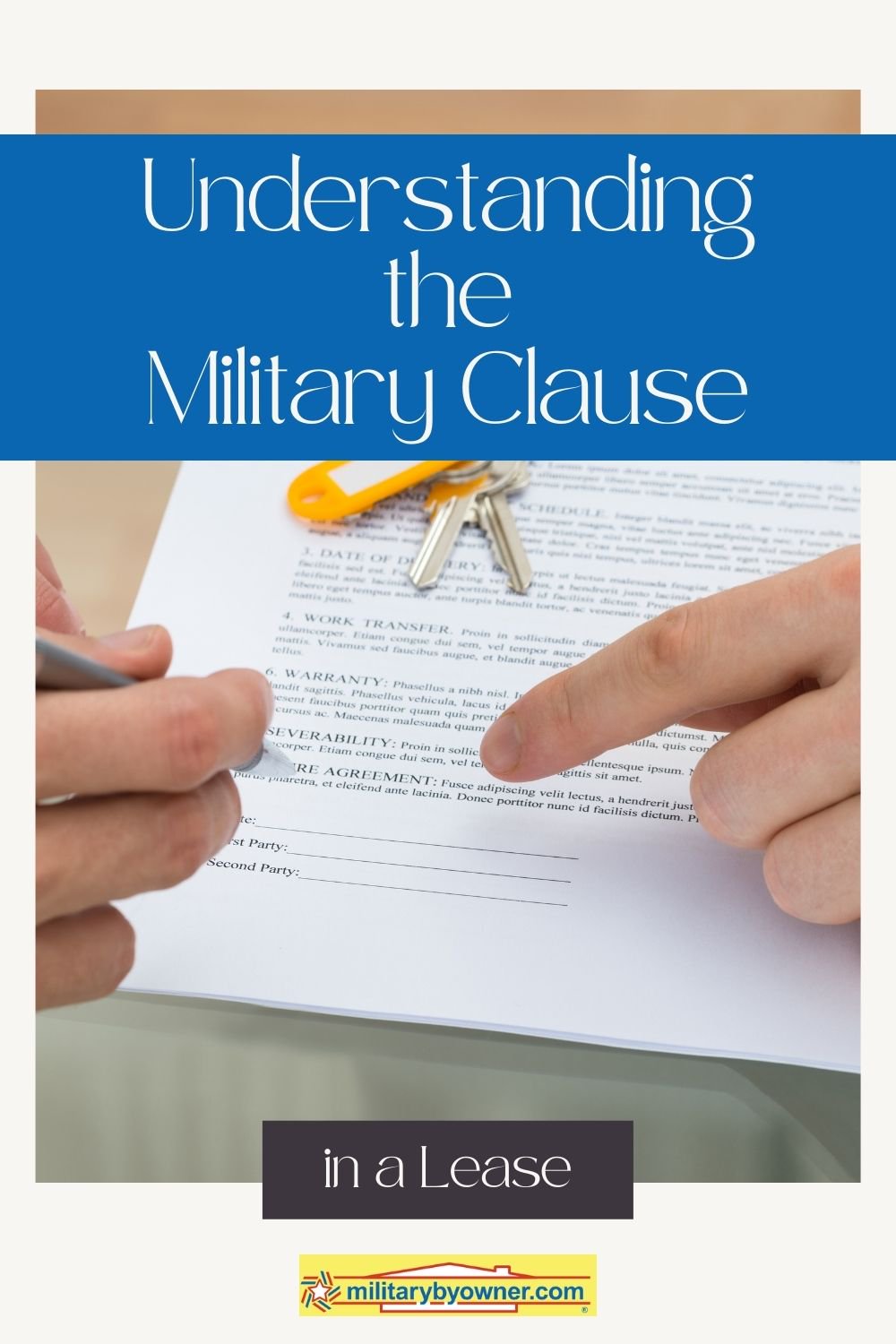
Photo from Canva
In this article:
One of the challenging points of landlord life is understanding your tenants’ rights. Not only are you required to comply with federal fair housing laws, but state and local regulations apply, too. And, if your rental business markets to military members, you’ll need a solid understanding of how military clauses affect lease terms.
Confusion Between the Military Clause and the SCRA
First, let’s sort the confusion. Sometimes, homeowners feel confused about military clauses because of their past uses. Before the Servicemembers Civil Relief Act (SCRA) was enacted in 2003, a military clause added to a residential lease was the most efficient way military tenants could break their lease if duty called.
Now, thanks to the federal SCRA laws, servicemembers (and their families) DO NOT need a military clause to break their lease for a permanent change of station or if they were issued orders for a deployment or temporary duty for more than 90 days. The SCRA also applies to military members activated or reactivated into service. It’s also important to note that, since the SCRA was enacted, it’s less common for landlords and property managers to include a military clause in a lease. We’ll discuss the details of a military clause below.
Learn more about the confusion between SCRA and military clauses in Should I Have a Military Clause in My Lease?
Military Clause and SCRA Payment Facts
Landlords worry about the SCRA and military clauses because they think the tenants can just leave without paying rent. This is untrue. The SCRA has precise details about payment, but it’s up to you to hammer out payment details with your tenants if you allow a military clause in the lease.
Here's a quick look at the SCRA and your tenants' rent obligations.
With written notice (usually orders are included), a military family can terminate a lease no sooner than 30 days following the next due rental payment. For example, if your tenant receives orders on October 10, then they have to pay rent on November 1 and can terminate the lease as of November 30. As the landlord, keep in mind that you must return the security deposit minus any damages agreed to in the lease.
Read Everything Renters and Landlords Should Know About the SCRA and the Military Clause for a solid, overall understanding of the Servicemembers Civil Relief Act.
What Exactly Is a Military Clause?
Landlords and tenants write military clauses to help each party negotiate and understand lease terms that come from military life related residency changes.
If you or your tenant needs help learning about how to write or sign off on legal military clauses, it's a good idea to contact a local real estate attorney with experience working with military members, a local military housing office, or JAG services.

Photo from Canva
Common Military Clauses in a Lease
1. Distance
A distance clause is helpful for military families in dense traffic-congested areas, such as the National Capital Region. For example, military families with orders to the Pentagon who think they’ll later receive orders to Fort Meade, Maryland, could benefit from a military clause.
The commute distance between the Pentagon and Fort Meade doesn’t mandate PCS orders that activate the SCRA permissions to terminate a lease, but the daily commute would be tough. So, in this case, a military clause that permits a lease termination in the event of reassignment to another installation significantly improves the servicemember’s quality of life.
2. On-Base Housing
Suppose your potential tenants wanted to move into military housing when they arrived at their new duty station, but it wasn’t available. They prefer to live there as soon as space is open, but it could take more than a year. In this case, you and the tenant can negotiate a military clause centered on base housing availability.
Be aware that sometimes as the homeowner, you’re obligated to remove a servicemember from a lease if they’re officially ordered by the command (like a senior leader who must live in a specific house on base). Each state has laws dictating how these terms apply. In some states, the military family doesn’t need orders to move into base housing. Instead, they simply need to show that they’re off the housing waiting list and a house is available.
3. Medical Care
Military families with ongoing (or something new that happens during their lease dates) medical issues may ask to include a military clause concerning the possibility of moving closer to (military or non-military) medical facilities that can accommodate their needs.
4. The Reverse Military Clause
If you too serve, then you should know about a reverse military clause. It helps you as a landlord return to your home and legally ask your tenants to vacate before their lease expires. A reverse military clause simply states that you will move into the house if you receive orders back to the area. The details are negotiable, but you should also know that some states automatically side with the military landlord if they want to move home.
Why Are Landlords Concerned About Military Clauses?
Before the SCRA, military clauses helped military families break their lease, but they might not have been written with terms that mitigated the problems landlords faced after the tenants left.
A military clause can present a potential financial problem for military landlords if it isn’t written in a way that the renters bear some financial responsibility. Suppose the tenants use a military clause to terminate their lease outside of the military’s traditional summer moving season. In this case, you might have a more challenging time finding qualified applicants in the off-season.
Your vacancy dates could also linger until another military moving cycle comes back around. Or, you might have to sign a one-year lease with tenants instead of a more financially stable two- or three-year lease. Keep in mind, with professional help, you and your tenant can craft a legal military clause that protects and benefits both parties so you can rest easier knowing your business is protected.
Although you might be hesitant to agree to military clauses in your tenant’s lease, you should know that military renters are some of the most responsible and reliable tenants among all renters, not only because they’re guaranteed BAH each month and have responsibility and discipline drilled into their lifestyle, but because problematic landlord/tenant issues that escalate could harm their careers.
By Dawn M. Smith
Get more information for your landlord journey with our free resource:


back to top